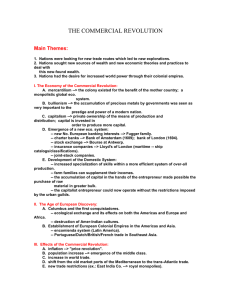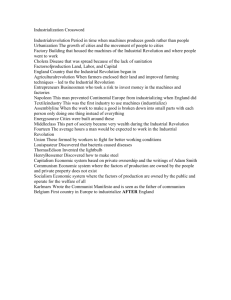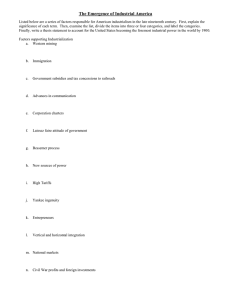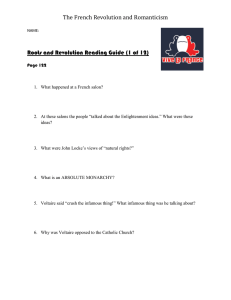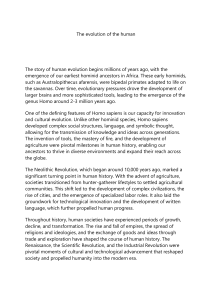.
advertisement
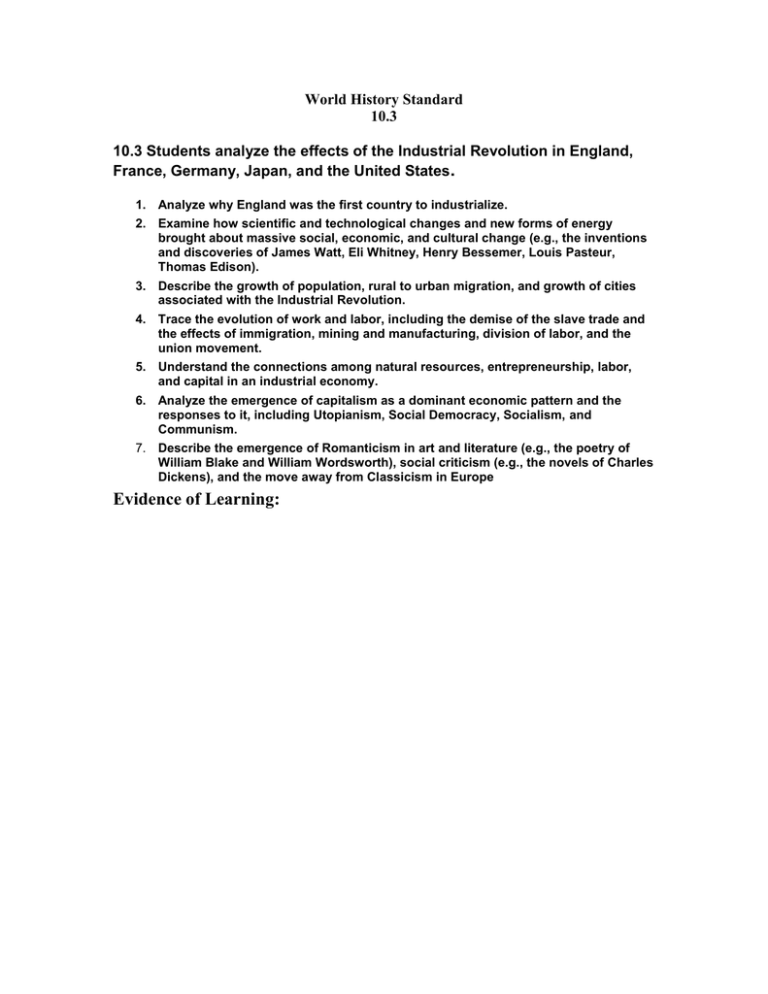
World History Standard 10.3 10.3 Students analyze the effects of the Industrial Revolution in England, France, Germany, Japan, and the United States. 1. Analyze why England was the first country to industrialize. 2. Examine how scientific and technological changes and new forms of energy brought about massive social, economic, and cultural change (e.g., the inventions and discoveries of James Watt, Eli Whitney, Henry Bessemer, Louis Pasteur, Thomas Edison). 3. Describe the growth of population, rural to urban migration, and growth of cities associated with the Industrial Revolution. 4. Trace the evolution of work and labor, including the demise of the slave trade and the effects of immigration, mining and manufacturing, division of labor, and the union movement. 5. Understand the connections among natural resources, entrepreneurship, labor, and capital in an industrial economy. 6. Analyze the emergence of capitalism as a dominant economic pattern and the responses to it, including Utopianism, Social Democracy, Socialism, and Communism. 7. Describe the emergence of Romanticism in art and literature (e.g., the poetry of William Blake and William Wordsworth), social criticism (e.g., the novels of Charles Dickens), and the move away from Classicism in Europe Evidence of Learning:
